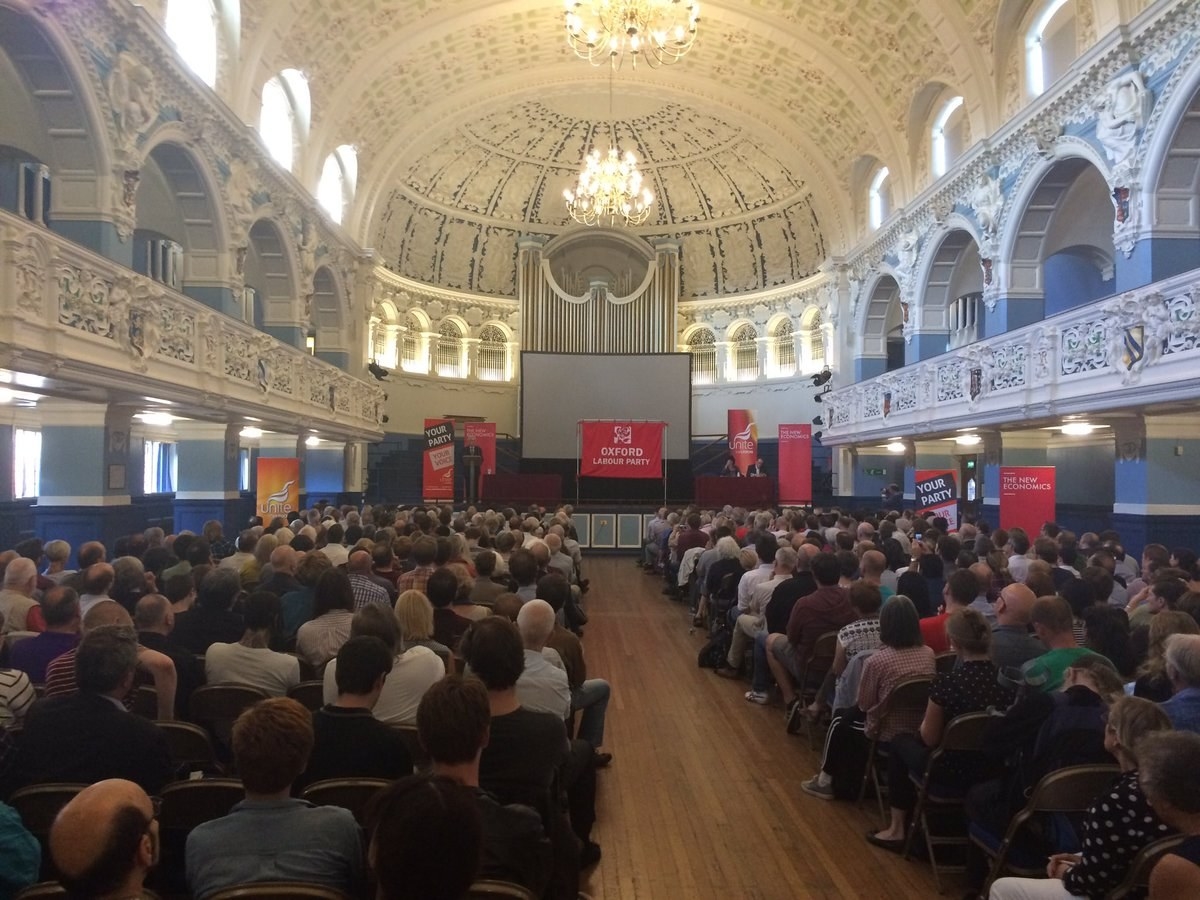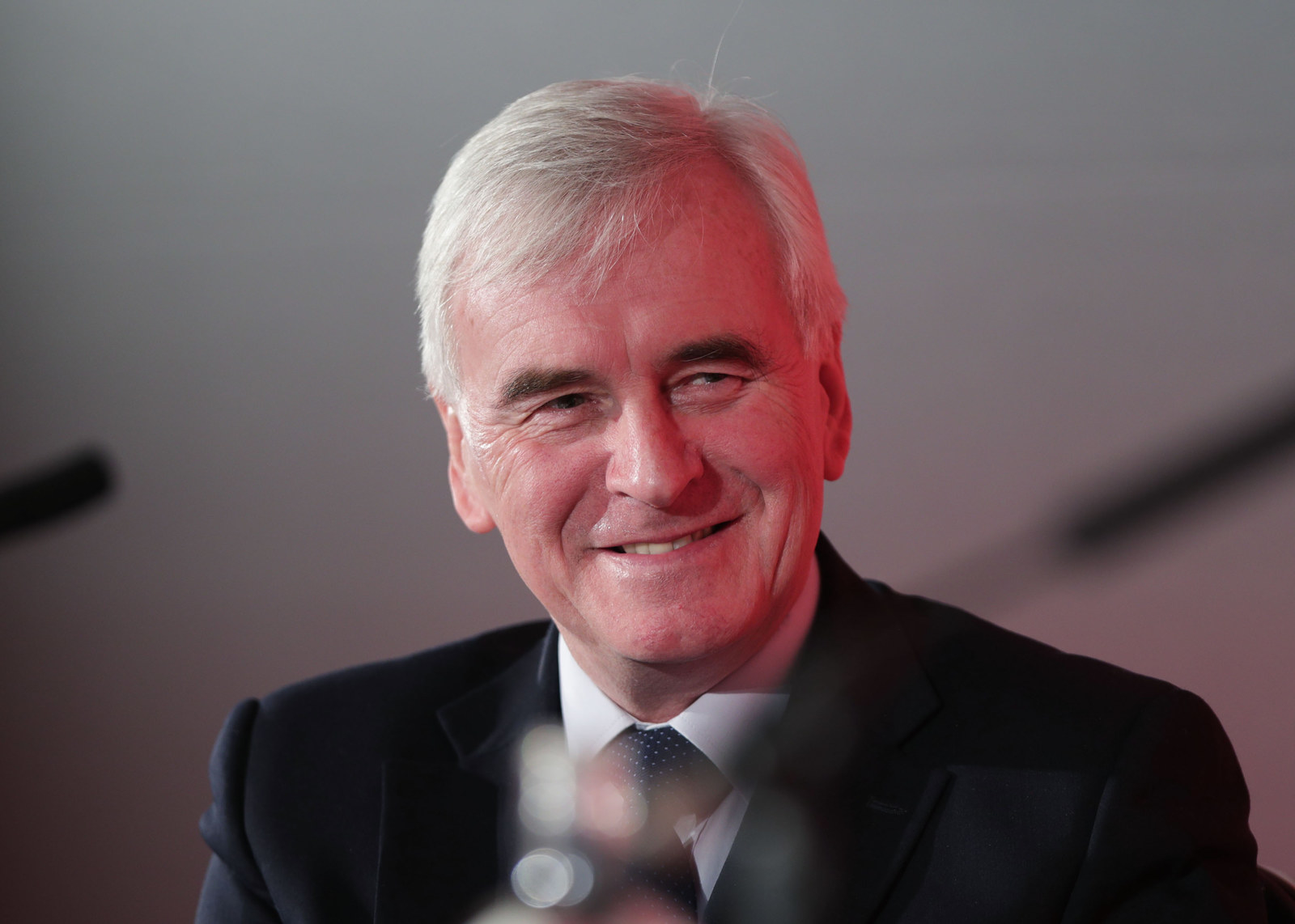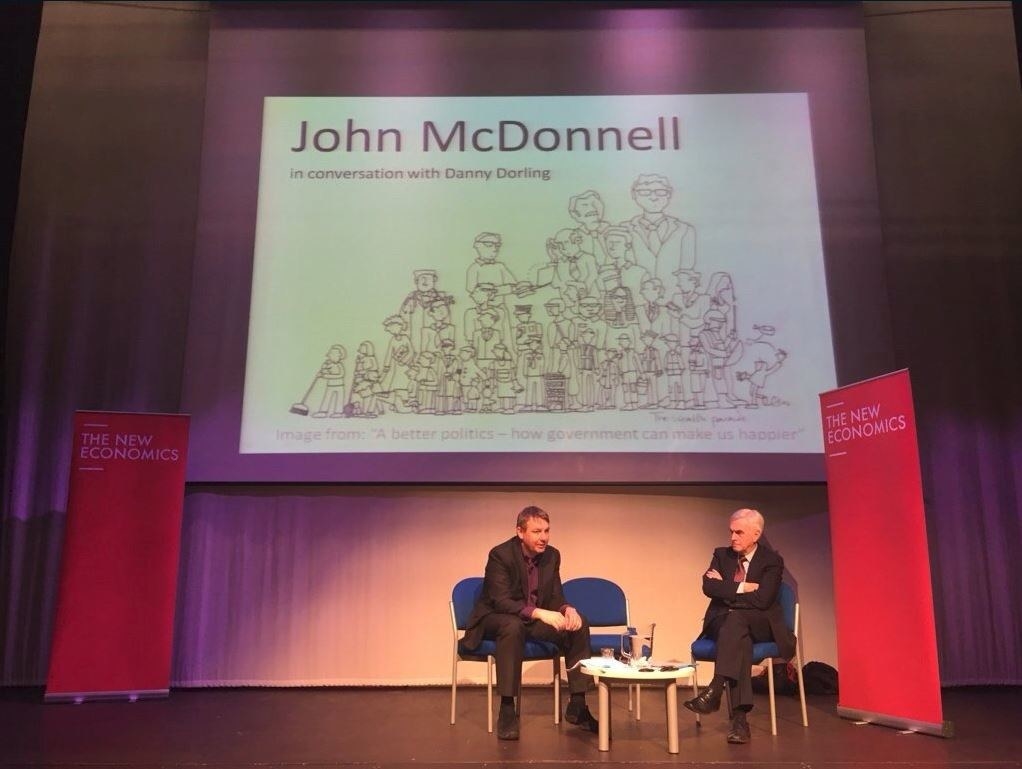
With Theresa May’s Conservative party in crisis, splitting itself in two over Brexit, the question on many people’s lips has been: “Where are the opposition?”
The answer, Labour says, is that they're on the ground in some of the most marginal seats in the country, building up the party's supporter base and engaging with local residents.
Far from failing to capitalise on a government in turmoil, the party is preparing for a general election, which could come sooner rather than later.
Today, the shadow chancellor, John McDonnell, is in Hastings, on England's south coast. Amber Rudd, the former home secretary, held on to the seat in last year's general election with a majority of just 346 votes.
His visit is the first in a series of fortnightly trips that McDonnell and his shadow Treasury team will be making from now until the next election — whenever that may be. Next on the list is Broxtowe in Nottinghamshire, held by Conservative rebel Anna Soubry with a slim majority of 863.
Also on the hit list in that same county is Mansfield, where recently resigned Tory vice chair Ben Bradley has a majority of just over 1,000, and Blackpool, where one of the town's two constituencies is held by the Conservatives by 2,000 votes, and the other by Labour with 2,500.

McDonnell’s economy roadshow aims to give people an opportunity to tell opposition ministers what isn’t working locally and how they think it could be better.
The destinations, McDonnell unashamedly admits, have been chosen for their potential political gain.
“We want to know why didn't we win this particular seat: What are the issues that we need to address?” he tells BuzzFeed News.
“We'll look at those seats that we could have won and should have won and maybe will win in the future if we get our ideas right. It's politically targeted — this is all part of the preparation for the next election.
“They're areas where they're highly marginal: We've either just won them or we've just lost them, the Tories are just clinging on. This is all about winning the next election.”
Rather than focusing on big cities, the tour will take in smaller towns — places that have felt the pinch of austerity hardest, where voters are disillusioned with politics, in areas that have lost out on investment to bigger cities. Many of them are in parts of the country that voted to leave the EU.
“Most of them are areas that have been left behind, not invested in, and have their specific problems as well,” McDonnell says. “A lot of the areas we're going to are coastal towns in particular, most of them are nonmetropolitan areas, so they're smaller towns that seem to be suffering at the moment after years of austerity.
“For us it's about politically winning them, of course, but we can't win them unless we understand what people are facing and [are] therefore adapting our policies accordingly.”
He says there is “a lot of anger” and disillusionment with politics in general — a driver, he says, for the Brexit vote.
“What I get time and time again in the discussions in local areas is that they feel the whole fabric of their society is falling apart,” McDonnell says. “They feel that the Conservatives over eight years of austerity have run their areas into the ground.
“What we’re saying to them is actually there are alternatives, but we want to listen to you about what you think the issues are, what you think the solutions are — here’s what we think, and we’ll marry that together.”

As well as seeking to gain political advantage, McDonnell says, the purpose of the roadshow is to gather ideas, which will influence a Labour government should the party come to power.
“It's part of a campaign but it's also about making sure that local people are involved,” he says, “and just fully engaged in developing the policies so that when Labour comes into power we know what we need to do in that particular area.”
The idea is left-field: to allow local people to lead on policy-making, rather than economists in the Treasury.
“We’ve got a very centralised state that doesn’t listen to anyone at the moment,” McDonnell says, “but certainly doesn’t listen to local communities, and as a result of that there’s been poor decision-making and at the same time it hasn’t reflected the needs of local people.
“That’s why we’ve got this massive regional imbalance in investment that goes on. I think it’s time for the people themselves to start making the decisions.”
The economy can seem like an impenetrable topic for the politically unengaged, but McDonnell thinks that needn’t be the case. Despite the Hastings event being advertised just a week ago, 200 people have signed up for it, he says, and regional economic conferences that he has staged have drawn between 500 and 700 people “buzzing with ideas”.
“We'll be talking about jobs,” he tells BuzzFeed News. “We'll be talking about people's income. We'll be talking about the type of jobs that they want, the sort of skills that they need, and how they can invest in that.
“People understand how their local economy works. They might not want to talk in economic language, but actually people know, and the best budgeters are people on low incomes who have to budget hard to survive each week.”

Opinion polls have consistently shown that voters don’t trust Labour on the economy. Even when the party is ahead in the polls, the electorate still has concerns about handing over the nation’s purse strings to McDonnell.
He is undeterred. “Don’t trust us, trust yourselves,” is his message. “It will be you who develops the ideas in your area,” he says. “When we go into government, everyone will go into government.”
“I do think people understand what’s needed in their local area,” he says, reiterating the message. “I think they do know what investment they need. I think they’re the wisest when it comes to looking at the long-term plans for their area too.
“Yes, we will be bringing with us our economic advisers, and when ideas come forward our economic advisers will talk to local people about what is feasible, how they can test whether it’s feasible or not, how successful they think it could be.”
The workshops will include local MPs, councillors, and community groups, as well as local residents.
“We want to get elected to government,” McDonnell says. “Of course we do. But we want to take power to give it away. We want to empower local communities.”
He thinks that a Labour government in the near future is an achievable goal. “If the election had been in another couple of weeks we’d be in power now,” he said.
“At the last general election we were 38% in the polls. We’re now consistently in between 38 and 42; the Tories have fallen back.
“We need another 5 or 6% to make sure we have a clear overall majority. We think once we get into an election campaign and we are legally obliged to get a semblance of balanced coverage in the broadcast media, we think we’d get our policies across and we’ll be in power.”

What Labour is hoping for, he says, is that Theresa May will not have a majority in parliament to pass the Brexit deal that she negotiates, that the Conservatives will be in disarray, and that a general election will follow, “and we can then take over and get on with negotiating a Brexit that will protect jobs and the economy”.
The series of one-day events is a huge undertaking — involving all of the shadow Treasury team — and will no doubt raise McDonnell’s personal profile. But he denies that he has leadership ambitions: "Not at all, no."
“I’ve stood twice — that’s enough for me,” he told BuzzFeed News, adding that his only goal is “to get into government as rapidly as possible” and take his place in Number 11 Downing Street.
Now, as the Conservatives continue to pull themselves apart over Brexit, Labour has already unofficially kicked off its election campaign. The infighting, McDonnell says, “gives us the opportunity of going out and explaining to people what the alternative is”.
“We don’t even have to attack the Tories,” he tells BuzzFeed News. “They’re attacking themselves enough. They’re ripping themselves apart — they don’t need us to contribute any further. What we’ve got to do is to demonstrate a positive alternative.
“What people want is hope. And what we’re saying is this is about building the future, and we want to do it from the grassroots upwards.”
